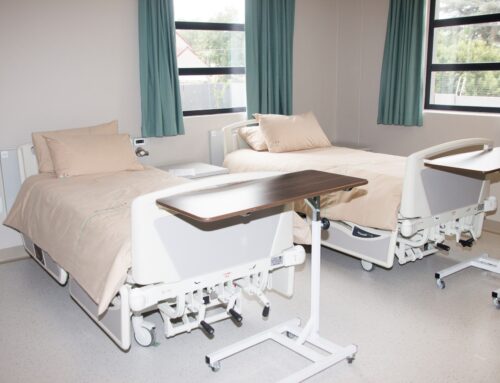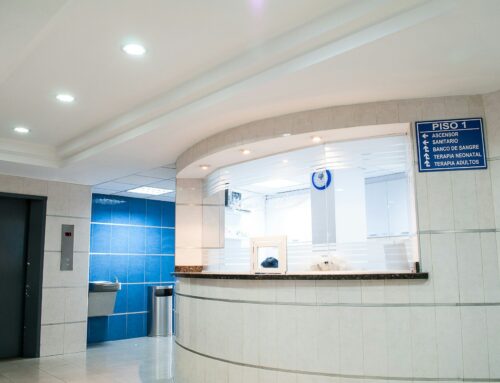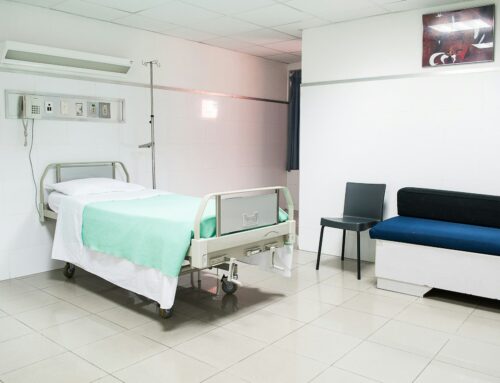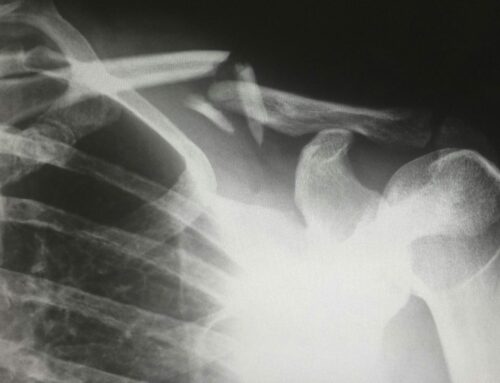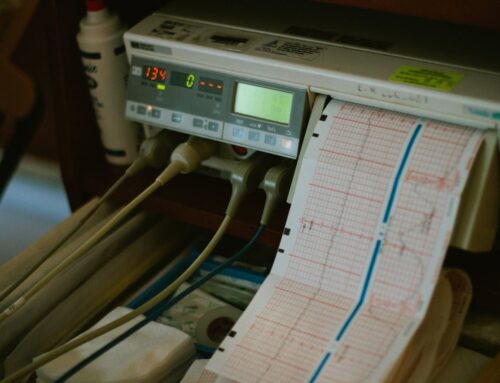Wrongful birth claims have emerged as a significant yet complex area of law in Ireland, especially following the legalisation of abortion under specific conditions in 2018. These claims, rooted in instances of medical negligence, raise intricate and delicate legal questions for parents facing this difficult situation. This article aims to provide a comprehensive guide for parents, elucidating the nature of wrongful birth claims, the evolving legal landscape in Ireland, and the critical steps involved in seeking justice and compensation. By offering detailed insights and practical advice, McElhinney & Associates hopes to support families in navigating the profound challenges associated with wrongful birth cases.
What is Wrongful Birth?
A wrongful birth claim typically arises when parents argue that due to medical negligence, they were not provided with crucial information regarding their unborn child’s health or potential genetic conditions. This oversight by medical professionals can prevent parents from making fully informed decisions about their pregnancy, specifically the choice to terminate if faced with the prospect of severe disabilities that could impact the quality of life of the child and the family.
The negligence might involve failure to detect anomalies in routine screenings or miscommunication of test results. Essentially, the claim hinges on the healthcare providers’ duty to deliver comprehensive prenatal care that includes accurate diagnostics and clear, informative communication regarding any findings.
Wrongful Birth Claims in Ireland
In Ireland, the concept of wrongful birth claims is relatively new, especially in the wake of the Health Act 2018, which legalised abortion under certain conditions. This legislative shift has introduced new dimensions to wrongful birth claims, a legal area that continues to evolve within Irish jurisprudence.
With the enactment of the Health Act 2018, Ireland has started to address these complex issues more directly. The legal framework is now adapting to accommodate claims from parents who might argue that, had they been properly informed about their child’s condition, they would have opted for an abortion. This aligns with their legal rights under the new legislation. This change marks a significant transition in how wrongful birth claims are perceived and managed in Irish courts, reflecting broader societal shifts towards reproductive rights and medical ethics.
Statute of Limitations for Medical Negligence Cases in Ireland
Adding to the complexity of these types of claims, the statute of limitations for medical negligence in Ireland is generally two years from the date the person becomes aware of the facts constituting the negligence, often referred to as the “date of knowledge.” This is crucial for potential claimants to consider, as failing to initiate proceedings within this period may preclude the possibility of redress. This evolving legal landscape underscores the need for prospective claimants to seek expert legal advice to navigate the complexities of wrongful birth claims effectively.
Legal Rights of Parents in Wrongful Birth Cases
When parents face a wrongful birth situation, their legal rights are centred around the ability to seek redress and compensation due to medical negligence. In Ireland, the legal system recognises that parents can claim damages if it is found that medical professionals failed in their duty to inform or diagnose potential issues during pregnancy, which would have led the parents to make different decisions regarding the continuation of the pregnancy.
Rights and Compensation
Parents have the right to:
- Receive full and clear information about the health of the foetus during prenatal care, including any risks or genetic conditions detected.
- Make informed decisions about continuing or terminating a pregnancy based on accurate medical advice and testing.
- Seek compensation for additional costs associated with raising a child with disabilities if it can be proven that negligence in prenatal care deprived them of the choice to avoid such challenges.
Compensation may cover:
- Medical expenses: Both immediate and ongoing medical treatments required for the child.
- Special care costs: Expenses related to special education needs, mobility aids, and other necessary adjustments.
- Emotional distress: Compensation for the psychological impact on the family due to the unexpected situation.
- Loss of income: If caring for the child impacts the parents’ ability to work.
The Process of Filing a Wrongful Birth Claim in Ireland
Filing a wrongful birth claim involves several critical steps and requires comprehensive legal and medical documentation.
Steps to File a Claim
- Consultation with a Solicitor: Engage a solicitor who specialises in medical negligence and wrongful birth claims. This is crucial for navigating the complex legal landscape and understanding the potential for a successful claim.
- Medical Documentation: Gather all relevant medical records, including prenatal test results, communications with healthcare providers, and any other documentation that supports the claim of negligence.
- Legal Advice: Work closely with your solicitor to understand your rights and the strengths of your case. They will help interpret medical reports and advise on the best legal strategy.
- Filing the Claim: Your solicitor will file a claim on your behalf, outlining the negligence and the sought-after compensation. This includes detailing how the failure in duty of care has led to the wrongful birth scenario.
Importance of Informed Decisions and Consent
Making informed decisions and obtaining proper consent are fundamental aspects of medical ethics and patient rights, particularly in prenatal care. Ensuring that parents are fully aware of all relevant information regarding their pregnancy allows them to make decisions that best align with their values and circumstances.
- Informed Consent: One of the pillars of medical ethics, informed consent is crucial in prenatal testing and decisions related to continuing or terminating a pregnancy. Parents must be given all relevant information in a manner they can understand.
- Legal Framework: The Irish legal system supports the right of parents to make informed decisions based on accurate and comprehensive medical advice. Your solicitor can advocate for your rights if there was a failure in this process.
Engaging with Legal Professionals
Navigating a wrongful birth claim requires expert legal guidance to manage the complexities involved. Engaging with the right legal professionals is essential to ensure that parents receive the support and representation they need.
- Choosing the Right Solicitor: Select a solicitor with specific experience in wrongful birth claims as they will be more familiar with the nuances of such cases.
- Understanding the Judicial Process: Your solicitor should guide you through the judicial process, explaining each step, what is expected, and how long the process may take.
Navigating a wrongful birth claim can be emotionally and legally challenging. However, with the right support and understanding of your legal rights, you can pursue the necessary compensation and support needed for your family.
Case Study Examples in Wrongful Birth Claims
Irish Case Study: First Recognised Case of Wrongful Birth
In a landmark case in Ireland, a mother was awarded €1.8 million in the first ever wrongful birth case, setting a precedent for wrongful birth claims based on the right to travel for an abortion. The case revolved around a mother who was a carrier of a rare genetic condition. She had been led to believe, based on prenatal diagnostic results, that her child would not inherit the condition. However, the child was born with the disability and required 24-hour care.
This was the first case in Ireland where the court recognised the claim based on the mother’s constitutional right to travel for an abortion, had she been correctly informed of her child’s health condition. The court’s decision took into account the incorrect test results provided to the mother, which deprived her of making an informed decision about continuing her pregnancy.
UK Case Studies: Evolving Legal Perspectives
The UK cases below provide further valuable insights on the subject; however, it’s important to note that rulings in Ireland could differ due to differing legal frameworks and constitutional considerations. Irish courts have yet to fully develop a consistent approach to wrongful birth claims, especially in cases involving healthy children or less severe disabilities.
Case of McFarlane v Tayside Health Board (1999)
In the UK, the House of Lords’ decision in the McFarlane case significantly impacted the scope of damages in wrongful birth claims. The court allowed general damages for the pain and suffering associated with the pregnancy but ruled out compensation for the upbringing of a healthy child born following a failed sterilisation procedure. This decision was influenced by considerations of public policy and the notion of the child being viewed as a ‘blessing.’
Case of Parkinson v St. James and Seacroft University NHS Trust
This case diverged from McFarlane by allowing the parents of a disabled child to recover the additional costs involved in raising their disabled child. The court acknowledged the financial burden and the extraordinary care needs that were not anticipated by the parents, setting a precedent that distinguished between the costs of raising a healthy child and a child born with disabilities.
Case of Rees v Darlington Memorial Hospital NHS Trust
In Rees, the court modified the approach taken in previous rulings by awarding a fixed sum for parental autonomy loss, regardless of the child’s health status. This case introduced a more nuanced approach to compensation, acknowledging the broader impacts on parental life and autonomy.
These case studies illustrate the complexities and evolving nature of wrongful birth litigation, highlighting the importance for parents to seek experienced legal representation to navigate these challenging and deeply personal cases effectively.
Support and Resources for Families Facing Wrongful Birth Diagnosis
Navigating the aftermath of a wrongful birth diagnosis requires extra support for parents to address the multifaceted challenges that families may face.
Parental Support Checklist:
- Psychological Support
The emotional impact of a wrongful birth diagnosis can be profound, causing grief, guilt, and uncertainty. Access to psychological counselling can help parents cope, providing a safe space to express emotions and seek guidance. Support groups also offer a sense of community and shared experience, which can be comforting.
- Legal Assistance
Understanding your legal rights and options is crucial in a wrongful birth situation. Families should consult solicitors specialising in medical negligence and wrongful birth cases to navigate the legal process, secure necessary compensation, and protect their rights.
- Healthcare Services
Children born with conditions resulting from wrongful birth diagnoses often require specialised medical care. This includes regular visits to paediatricians, specialists, and various therapies such as physical, occupational, and speech therapy. Ensuring access to comprehensive medical care is essential for the child’s development and quality of life. Parents should work closely with healthcare providers to develop a tailored care plan.
- Educational Support
Children with disabilities from wrongful birth may need special education services or accommodations in school. Parents should explore local educational resources, such as special education programs and individualised education plans (IEPs), to support their child’s needs.
- Navigating Financial Support
Raising a child with disabilities can be financially demanding. Families should investigate financial support options from national and local government programs, including disability allowances, grants for medical equipment, and home modifications. Accessing these supports can ease financial strain and help provide for the child’s needs.
- Long-term Planning
Planning for the long-term care of a child with disabilities is crucial. This includes setting up trusts, planning for guardianship, and ensuring ongoing care throughout the child’s life. Legal and financial advisors can assist in these preparations, securing the child’s future.
Additional Resources for Parents
For additional help, the following resources provide valuable information and support services:
- HSE Children’s Disability Network Teams: A comprehensive network providing specialised support and services for children with disabilities. This resource helps children participate in family and community life.
- Citizens Information – Caring for a child with a disability: Offers detailed information on health services available for children with disabilities, including entitlements and support options for families.
- National Disability Authority (NDA): Provides resources and information on various disability-related topics, including policy developments, research, and support services for children with disabilities.
- Enable Ireland: Offers a range of services to support children with disabilities and their families, including therapy, education, and assistive technology services.
Together, these support systems play a crucial role in helping families manage the challenges associated with a wrongful birth diagnosis, providing the necessary resources to ensure that their child can lead the most fulfilling life possible.
Final Thoughts
Understanding wrongful birth claims in Ireland is essential for parents facing such challenging circumstances. These claims, though complex, offer a pathway for families to seek justice and necessary support when medical negligence has deprived them of making fully informed decisions about their pregnancies. As this area of law continues to evolve, it is crucial for affected families to engage with experienced legal professionals who can provide the guidance and representation needed to navigate these emotionally and legally intricate cases.
McElhinney & Associates Solicitors are committed to supporting families through these difficult times with compassion and expertise, ensuring that their clients have the opportunity to receive the justice and compensation they deserve. If you or someone you know is facing a wrongful birth situation, get in touch today for legal advice to understand your rights and options.
Disclaimer
Please note that the content of this blog post is intended for general information purposes only and should not be construed as legal advice on any specific matter. The information provided is based on the understanding of legal principles and practices as of its date of publication and may not reflect current legal developments. Every legal situation is unique and complex, and readers are advised to seek professional legal advice for any specific legal issues they encounter. McElhinney & Associates Solicitors disclaim all liability for any actions taken or not taken based on any contents of this post.
About the Author
Jolene McElhinney, BBLS, Principal Solicitor
Jolene McElhinney is the founding principal of McElhinney & Associates, a law firm renowned for its expertise in personal injury and medical negligence across the North West of Ireland. With a distinguished academic background, including a first-class honours degree from University College Dublin and awards for excellence in law, Jolene has dedicated over a decade to championing the rights of individuals facing complex legal challenges. Her commitment to professional growth ensures that her firm remains at the forefront of legal practice, offering personalised, expert support to every client.

